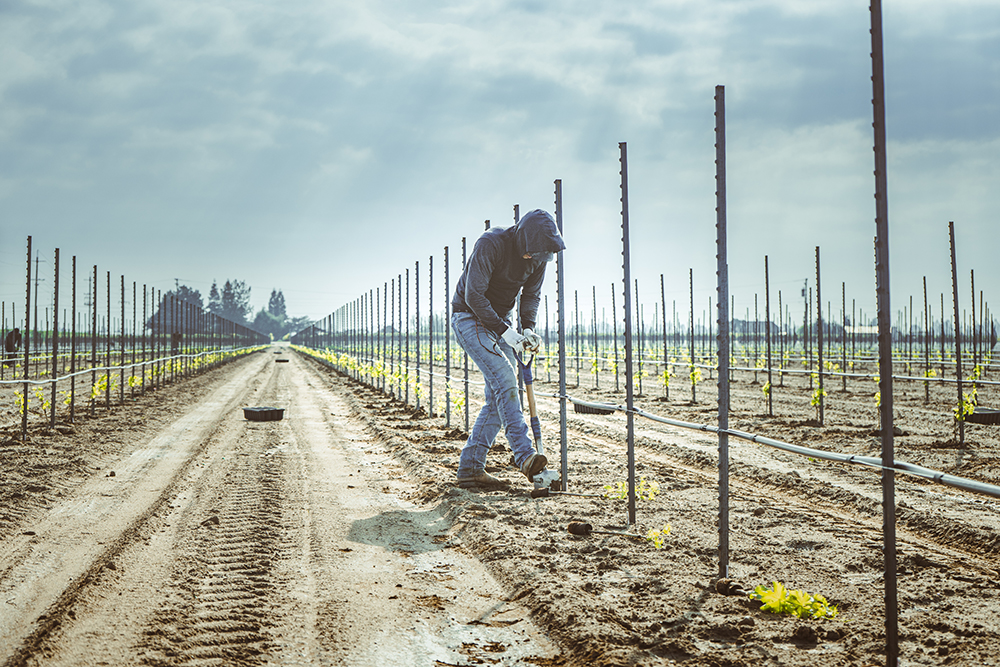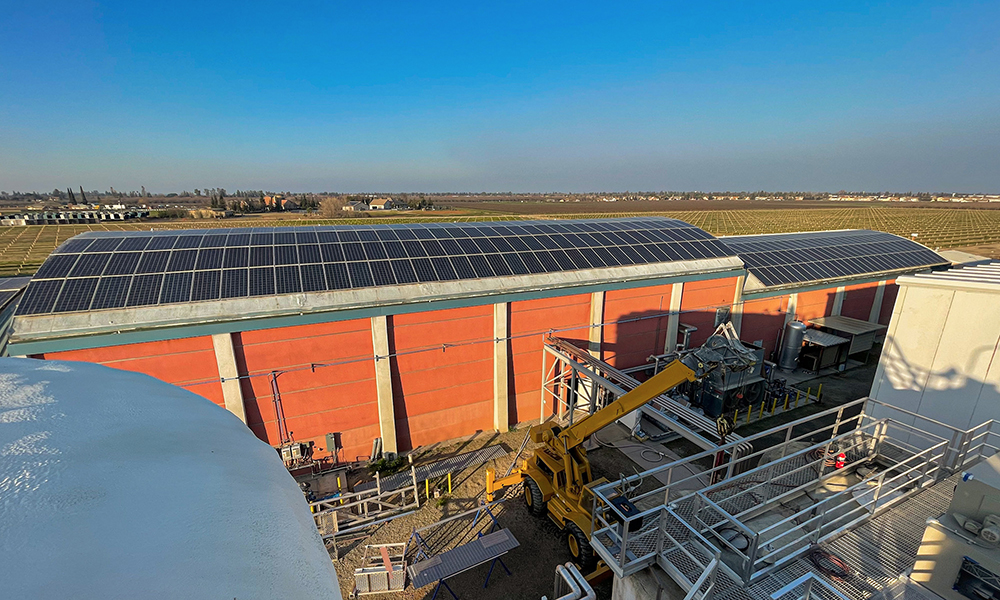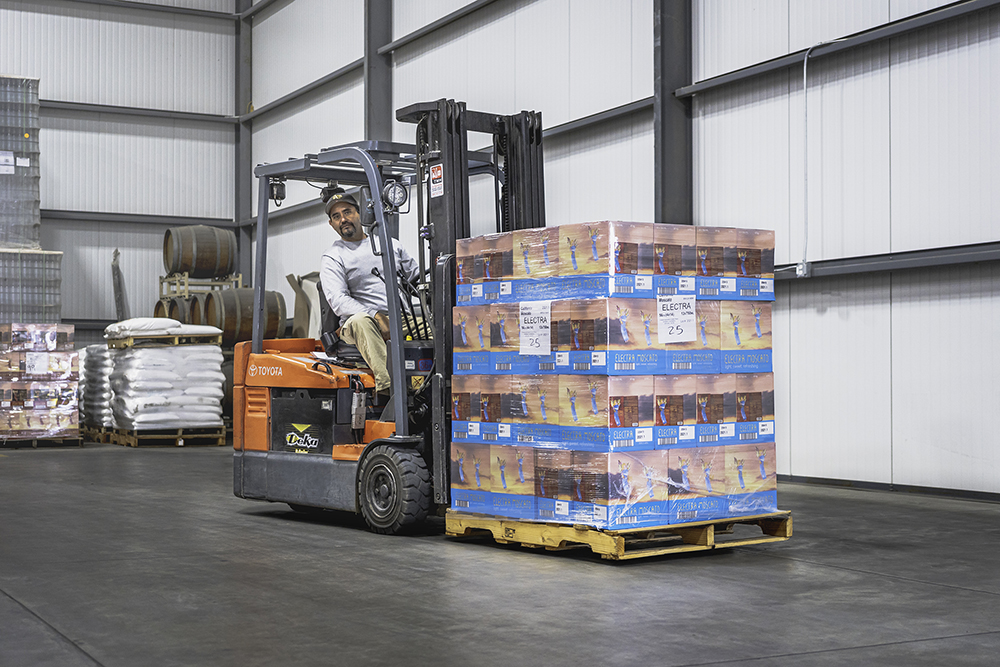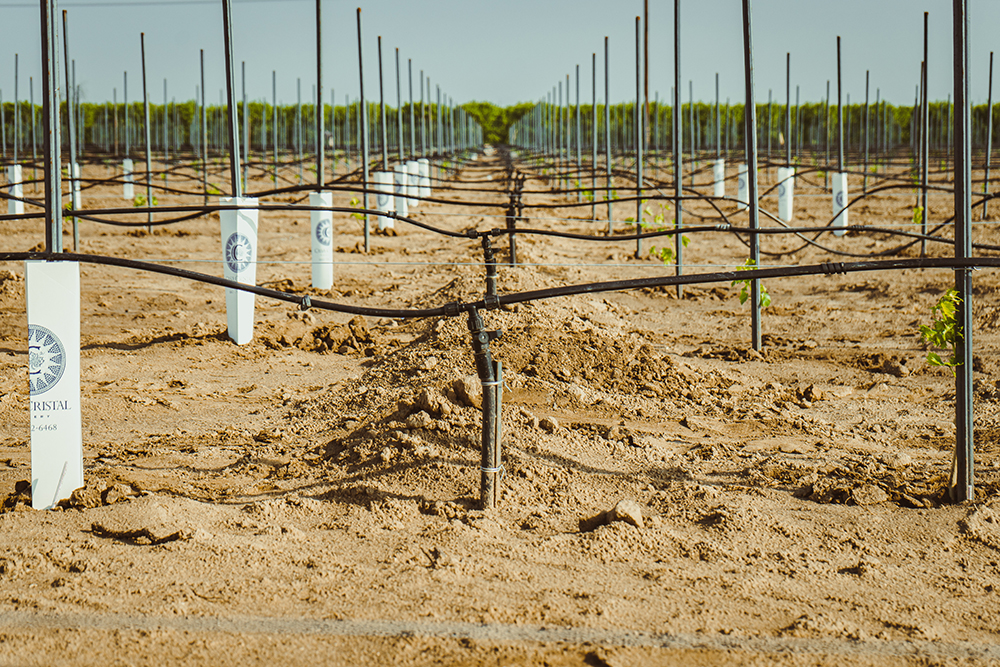Committed to Sustainability: Our Practices at Quady Winery
By Allison Quady Shaylor
If we don’t take care of our earth, who will? To tackle climate change, arguably the most urgent crisis of our times, we need to make substantial changes in how we do business, live, and play, and we need to do it now. We know at Quady Winery that we are far from perfect, and we’ve realized that we want to do our part to take care of the only home we know. We haven’t communicated our sustainability strategy to the wider world before, but we’ve realized that beginning to talk openly about how we are committed to sustainability will help us to continue to do more than we are doing now, promote good environmental practices, and start a conversation with others who are curious about or engaged in doing this work.
Here are some of the projects we feel particularly excited about that we think will help us to take better care of our earth:
Certified Sustainable Muscat Grapes

Our Black Muscat, Orange Muscat, and Muscat Canelli grapes that we buy from local growers (primarily the Prosperi family) are Certified Sustainable by California Sustainable Winegrowing Alliance. Sustainability certification means that these grapes are grown in a way that minimizes environmental, economic, and health risks and that growers are continuously improving their growing practices over time. Growers are conscientious water users, and considerate of the environment when planning for pest control or vine nutrition.
Solar Energy

We’ve installed solar panels on our winery roof resulting in annually offsetting 83% of our energy use. In other words, 83% of our energy comes from the sun! So, now when that sun shines incessantly over the summer, we feel something more than heat! We’re proud that we’ve put those rays to work for us in the form of clean energy to power our winery, keep our wines cool, keep the lights on, power our forklifts— and everything else that requires electricity.
Our future plan is to install a shade structure entirely covered with solar panels for our employee and visitor parking. We think we’d then be energy positive, potentially sending energy back into the grid. And we also might have some positive energy coming to us from employees who have shaded rather than scorching seats.
Low Carbon Energy
We are enrolled in California’s Low Carbon Fuel Standard Program, which incentivizes us to use electric vehicles and improve our electrical infrastructure. We currently have five electric forklifts. We plan to convert all winery vehicles to electric as they phase out of usefulness and to install an electric charging station.
Water Use and Conservation

This summer we’re putting worm and microbe power to work on our winery wastewater! Did you know that worms and microbes can remove up to 99% of natural wastewater contaminants? As a winery we use water every day to clean our equipment and at the end of the day we have water that is filled with natural grape nutrients (natural contaminants). If we spread this over a large area, like our vineyard, the vines can take up the nutrients so they don’t contaminate the groundwater. But, since we’ve expanded our production and we have more natural waste, we need to take some of this nutrition (nitrogen, dissolved grape solids) out of the water. The worms and microbes in our new soon-to-be-installed BioFiltro system eat the dissolved solids and nitrogen, effectively treating the water so that it is suitable to irrigate our vineyard in the spring, summer, and fall, and our cover crop in the winter. For every drop of filtered wastewater we use in our vineyard, that’s one less drop we are pumping out of the ground. In effect, we’re getting two uses out of the water that we pump: first in our winery, and second in our vineyard.
While the above projects are a start and steps in the right direction, we recognize that there is so much more that can be done! We’re self-auditing this year to pursue sustainability certification for the winery, and we’re interested in continuing to learn more about how we can reduce our carbon footprint and become good stewards of the earth.

